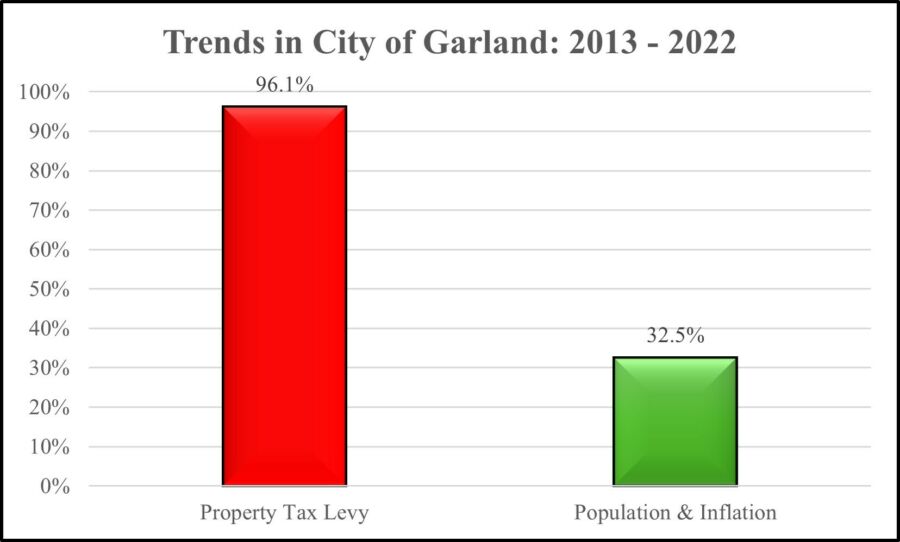The city of Garland’s property tax is skyrocketing, especially as compared to basic economic measures, like population and inflation.
According to its latest available Annual Comprehensive Financial Report (ACFR), the city’s property tax levy rose from $70,801,851 in 2013 to $138,853,429 in 2022, equating to a 96.1% spike in monies to the government (see pg. 139 of the ACFR). Such robust revenue growth outstrips population growth and inflation by a wide margin.
Over the same time horizon, the city’s population grew from 231,618 to 247,590, representing a modest 6.9% increase (see pg. 145 of the ACFR). For its part, inflation rose by 25.6% (see CPI – U.S. city average, All items). Thus, population and inflation in Garland increased by a combined 32.5%.
The difference between these two measures—i.e. actual growth rate vs. ideal growth rate—suggests that the city is aggressively over-taxing property owners and ought to do more to limit its appetite, such as voluntarily undergo a third-party efficiency audit, regularly employ zero-based budgeting, or utilize other strategies to bring down costs. By taking these steps now, city officials can bring balance to its property tax system and better protect those footing the bill in the future.
What do you think—is the city of Garland taxing too much?
